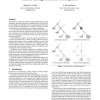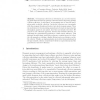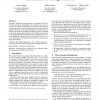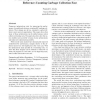177 search results - page 5 / 36 » The garbage collection advantage: improving program locality |
LCTRTS
2005
Springer
14 years 28 days ago
2005
Springer
Real-time garbage collection has been shown to be feasible, but for programs with high allocation rates, the utilization achievable is not sufficient for some systems. Since a hi...
ACMMSP
2006
ACM
13 years 11 months ago
2006
ACM
We introduce a method for providing lightweight daemons, called simplifiers, that attach themselves to program data. If a data item has a simplifier, the simplifier may be run aut...
CC
2005
Springer
14 years 1 months ago
2005
Springer
Abstract. Generational collectors are well known as a tool for shortening pause times incurred by garbage collection and for improving garbage collection efficiency. In this paper,...
IWMM
2010
Springer
14 years 7 days ago
2010
Springer
This paper argues that economic theory can improve our understanding of memory management. We introduce the allocation curve, as an analogue of the demand curve from microeconomic...
IWMM
2007
Springer
14 years 1 months ago
2007
Springer
Numerous optimizations exist for improving the performance of nondeferred reference-counting (RC) garbage collection. Their designs are ad hoc, intended to exploit different count...




